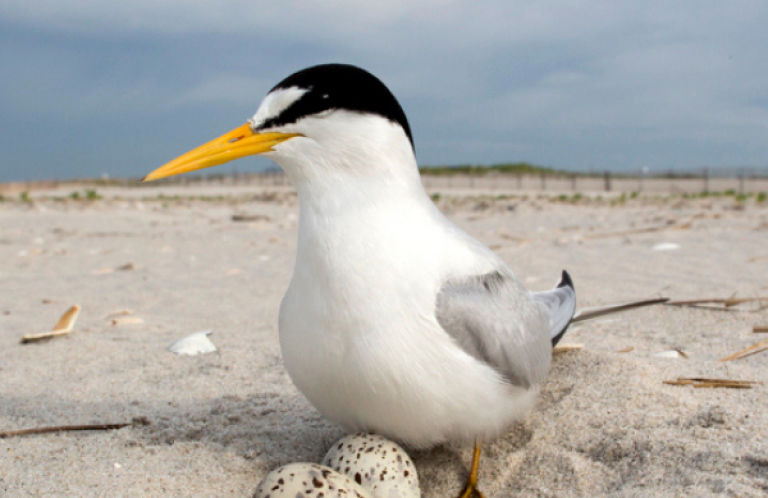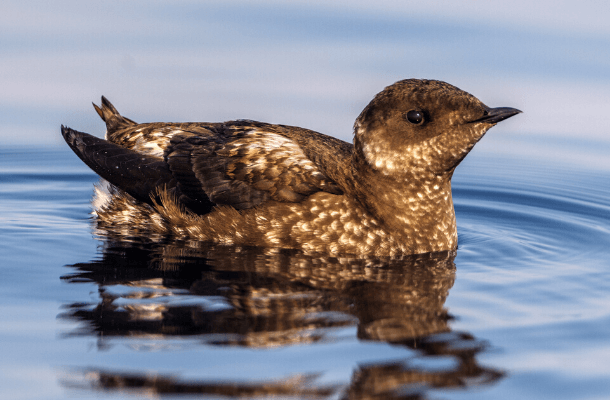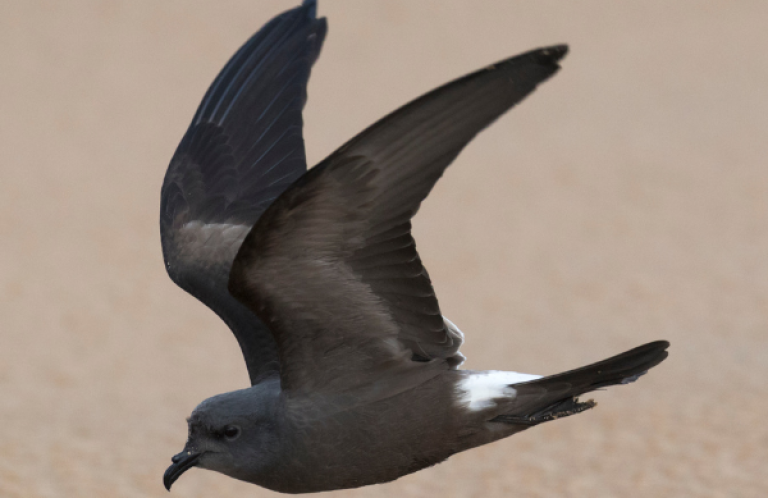Campsite Clean-Up Initiative Launched in Oregon to Help Waterbirds Thrive

Oregon's towering forests and sandy beaches are perfect places to enjoy the state's wildlife. But if campers aren't careful, their food waste can lure canny corvids such as crows and jays, which prey on the eggs and chicks of vulnerable waterbirds. This summer, American Bird Conservancy (ABC) kicked off efforts to make recreation areas across the state cleaner and safer spaces for the benefit of nesting Marbled Murrelets and Western Snowy Plovers.
Corvids like the Common Raven or Steller's Jay might seem to humans to be interesting birds, or annoying nuisances at worst. But for federally Threatened Marbled Murrelets and Western Snowy Plovers, these opportunistic predators can have a serious impact on nesting success. Studies indicate that corvids are one of the leading causes of nest failure in both species. Discarded food and other trash in campsites make the problem worse by inviting crows, ravens, and jays to congregate and linger in areas where they would normally be scarce.
Since the two species of concern are so secretive, campers likely don't even know they're around. Marbled Murrelets nest high in large trees, as far as 50 miles inland. Most people will never see one of these birds' nests in person. Western Snowy Plovers nest on sparsely vegetated coastal dunes, where their eggs and chicks blend seamlessly into the sandy surroundings.
Luckily, there is evidence that cleaner campsites deter corvids. California State Parks launched a “Crumb Clean” campaign in 2013 — offering camper education and better ways to dispose of waste, including wildlife-proof garbage cans, food lockers, and dishwashing stations. The program substantially reduced the presence of Steller's Jays in areas where it was implemented. Without such easy pickings, the birds opted to move on to more fruitful foraging sites.
"It's natural for corvids to prey on nests, but the balance is thrown off when predator populations increase because of access to food from humans,” said Lindsay Adrean, ABC's Northwest Program Officer. “For murrelets, keeping predators in check is particularly important because they only raise one chick in a breeding season."
Adrean is leading the expansion of the Crumb Clean program into Oregon, building on the “Keep Wildlife Wild” program developed by Oregon's Siuslaw National Forest. This summer, ABC completed a preliminary survey of priority campsites for the program. ABC is also partnering with the Oregon Department of Forestry, along with Environment for the Americas, to adapt signs and other materials used in the California campaign.
If all goes well, the effort could be expanded to Washington state as early as next year. The program serves as an important reminder that even a seemingly simple action, like washing a plate, can have life-saving consequences for imperiled wildlife.
###
American Bird Conservancy (ABC) takes bold action to conserve wild birds and their habitats throughout the Americas. Inspired by the wonder of birds, we achieve lasting results for the bird species most in need while also benefiting human communities, biodiversity, and the planet's fragile climate. Our every action is underpinned by science, strengthened by partnerships, and rooted in the belief that diverse perspectives yield stronger results. Founded as a nonprofit organization in 1994, ABC remains committed to safeguarding birds for generations to come. Join us! Together, we can do more to ensure birds thrive.
Media Contact
Jordan Rutter
Director of Communications
media@abcbirds.org


















































